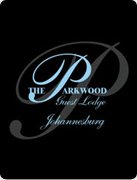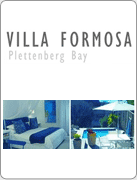VIEWS
PROPERTY: Cape Property Values Climb Ever Higher As Demand Outweighs Supply
Recent Western Cape Business News
The Cape property market continues to define and set the bar ever higher according to Seeff chairman, Samuel Seeff. Consider for example that for the second consecutive year, the Cape metropolitan property market exceeded that of Johannesburg both in transaction volume and value terms as demand outweighs supply.
With around 11 487 property transactions worth about R20bn, it generated over 40% more value than the Joburg metro’s just under R13.7bn (11 307 transactions).
Average prices in the Cape also continue appreciating at an inflation beating pace. According to the latest FNB Western Cape House Price Index, Cape property appreciated at around 14.9% on average, well above last year’s national average of 6-8%.
The average price of sectional title property is now at around R1.5M, significantly more than the R800 000 for the Joburg metro. Freehold property now sells for around R1.8M on average, about 20% more than Johannesburg’s R1.5M.
Seeff says that the strong demand is attributable to a number of factors. Bank lending is on the rise and so too is buy-to-let investment which, according to the index cited above, now accounts for around 10% of all activity, up from 6% in 2012. At the same time, financial-stress related selling is down while financially strong sellers are once again upgrading, accounting for a further 19% of activity and driving demand for higher priced property.
In line with global trends that point to the wealthy gaining in wealth and investing more in property, trophy home sales across the city more than doubled year-on-year to about R1.506bn (about 51 sales) compared to 26 sales worth R762 million in 2013. This includes about seven sales above R40 million, the highest number ever and with prices ranging to R65 million and R70 million on the Atlantic Seaboard and R69 million in the southern suburbs (Bishopscourt).
A further boost to the market came from foreign buyers who invested about R2.1bn, about 30% more than in 2013, says Seeff. About R1.17bn of this came from the suburbs of the Atlantic Seaboard and City Bowl, almost R491M from the southern suburbs (including the Constantiaberg area), just over R231 million from Hout Bay and the remainder mostly from the Blouberg and False Bay areas.
Activity was further boosted by upcountry buyers, mostly from the greater Johannesburg and Pretoria area who comprised as much as 15-20% in areas such as the Atlantic Seaboard, southern suburbs, Hout Bay and Somerset West over the last year, says Seeff. This includes buyers relocating to the city as well as those who invested in second homes for holiday purposes or the long-term objective of ultimately moving here permanently.
The rental market too is seeing excellent activity, says Seeff. From mid-market areas across the northern, western and south-eastern side of the city to the top end areas of the southern suburbs where luxury homes in Constantia and Bishopscourt now fetch rental rates upwards of R30 000 to R60 000 per month, there is no shortage of demand.
Apartments across the CBD, V&A Waterfront, Green Point through to Sea Point remain in demand with rental rates now ranging upwards of R10 000 to around R25 000. Luxury homes in Clifton, Bantry Bay, Fresnaye and Camps Bay now fetch anything upwards of R30 000 to R80 000 per month on long term rentals of twelve months and longer.
The Cape has a very unique value proposition, says Seeff. As evinced by the average sectional title and freehold prices alluded to above, the city is home to some of the most valuable property in the country.
The Atlantic Seaboard suburbs of Clifton, Bantry Bay, Fresnaye, Camps Bay and the V&A Waterfront make up the country’s richest real estate belt and, together with Constantia and Bishopscourt rank amongst the most valuable in the country with buyers prepared to pay upwards of R20 million to well over R100 million for a luxury home here.
Last year, WealthInsight (a London wealth consultancy) released data that pointed to the Cape as being home to almost 600 properties valued at more than R20 million, almost twice as many as Johannesburg. It also ranked Cape Town in the top 20 second home buying destinations among global multi-millionaires.
The efficient marketing of the city has, in the last year alone, seen it rank amongst the most sought-after by Condé Nast Traveler, The Telegraph (UK), Wall Street Journal (USA), New York Times, Lonely Planet and CNN World who named it amongst the most loved cities.
Aside from good governance, service delivery and a strong economy, Cape Town delivers on three key elements – location, lifestyle and scarcity – that makes it a global high demand and valuable property hot spot, says Seeff.
The mountains, the sea, the best Blue Flag beaches and palm-fringed promenades on the continent, world heritage sites such as Robben Island and Table Mountain, the V&A Waterfront with its trendy harbour-side shopping and dining, floral kingdom and world-class wineries, all right on our doorstep contribute to the demand for property. Add to this, the cosmopolitan lifestyle and trendy urban shopping, dining and entertainment nodes, historic and cultural attractions and weekend foods and goods markets.
On top of all of this, the city is still relatively safe. Progress too continues. Consider for example the development underway at Century City, De Waterkant, the foreshore and Waterfront and the MyCiti bus network that continues expanding to facilitate greater access from outer-lying suburbs.
The wonderful thing about the Cape is that there is something for everyone here, says Seeff, whether it is beach or suburban and whether you are looking to spend R1 million or R100 million. If you are looking for a seaside location, there’s the False Bay peninsula or the Strand, Blouberg or Melkbosstrand or the Atlantic Seaboard suburbs. If you are looking for more of a suburban vibe, then there are the northern or southern suburbs. Each area unique, with its own lifestyle draw cards, he adds.
While the Cape metro has been the star performer, Seeff says that it is worth mentioning that other areas across the Cape regions too are seeing an upsurge in activity. From interest in lifestyle and wine farms around Franschhoek and Stellenbosch to the holiday villages of the Western and Southern Cape and Garden Route as well as the countryside, there seems to be no shortage of buyers right now.
We have now had two years of good growth in the Cape property market and 2015 looks set to be another good year, the economic challenges notwithstanding, he says. Our agents continue to report strong buyer demand and tight inventory levels, especially in the hot spot areas such as the Atlantic Seaboard and City Bowl, southern suburbs, Somerset West, Hout Bay and Blouberg.
Business News Sector Tags:
|
|
||
|
Accommodation
Foreign Exchange
Directory
Fax 2 Email
Finance
Furniture
Online Casino
Restaurant
Shop Online
Study IT Online
Web Design
Weddings
Work from Home
|
||
|
Company News
|
||










